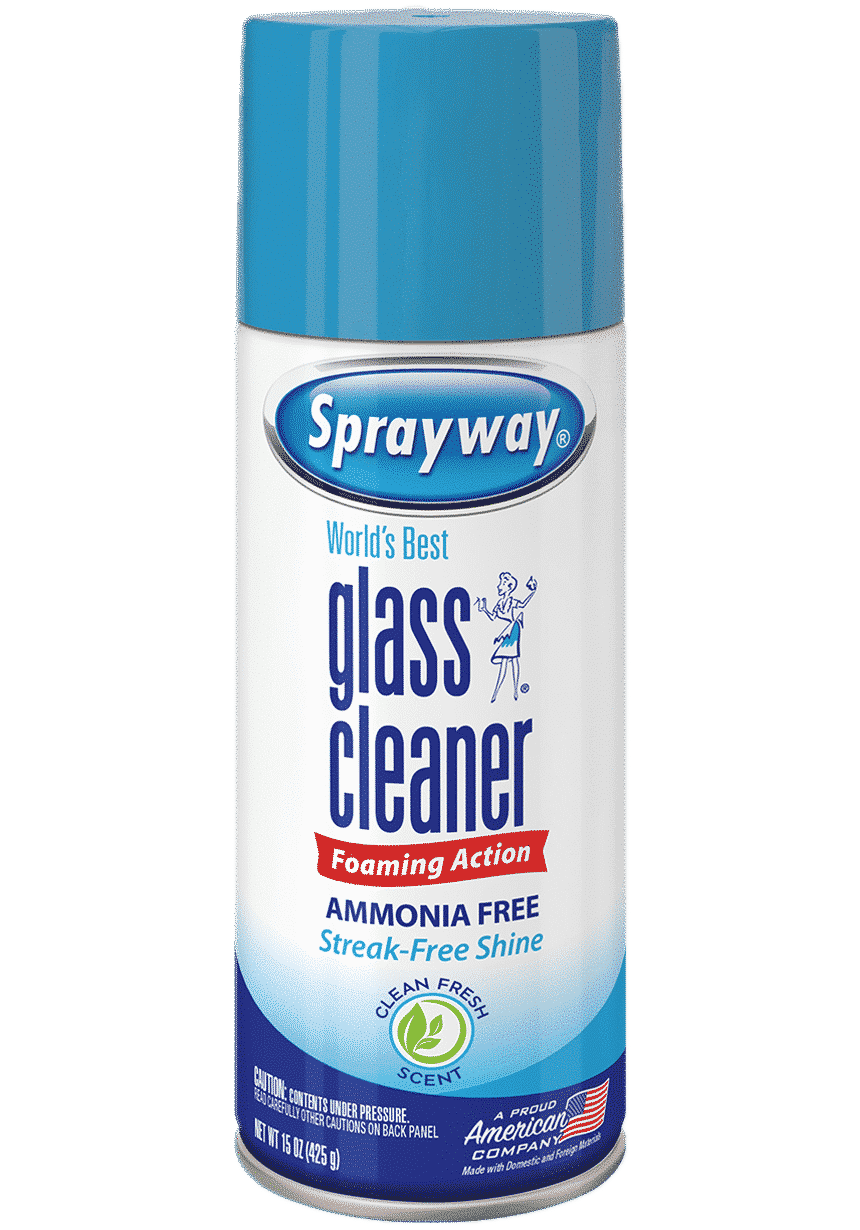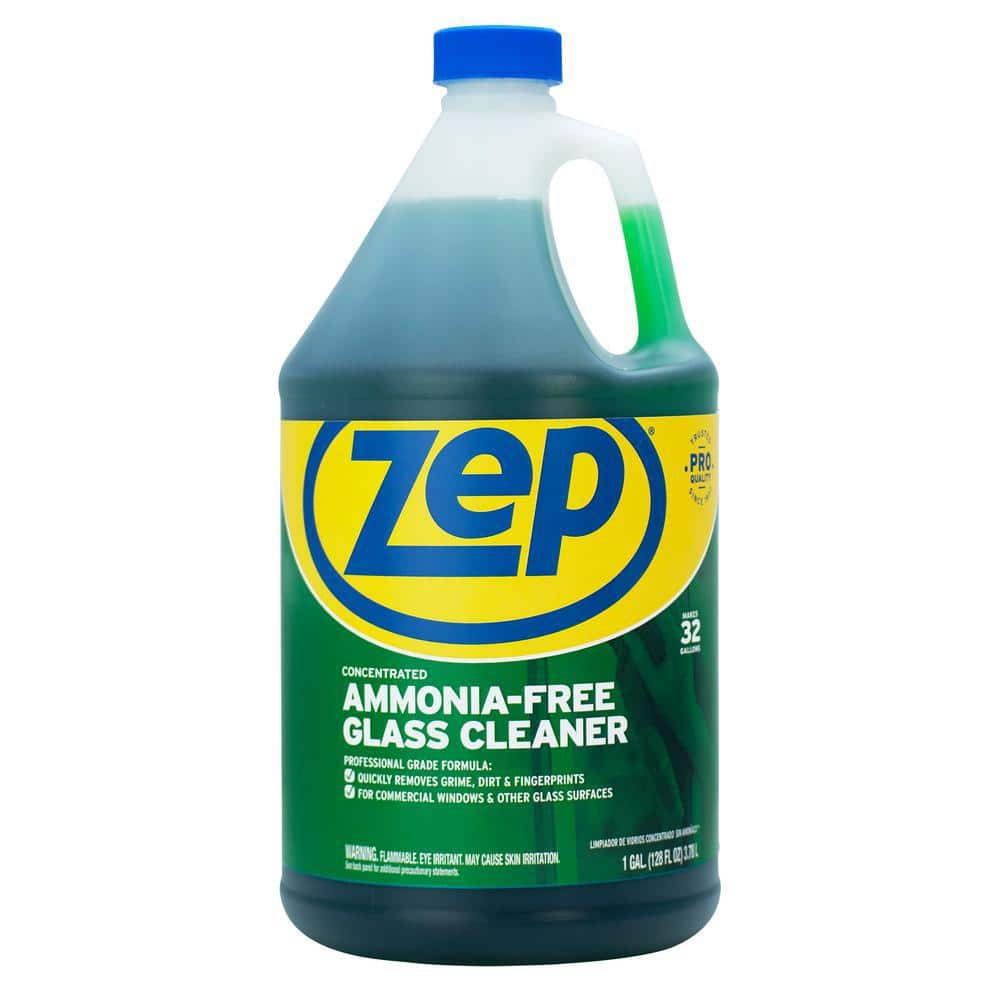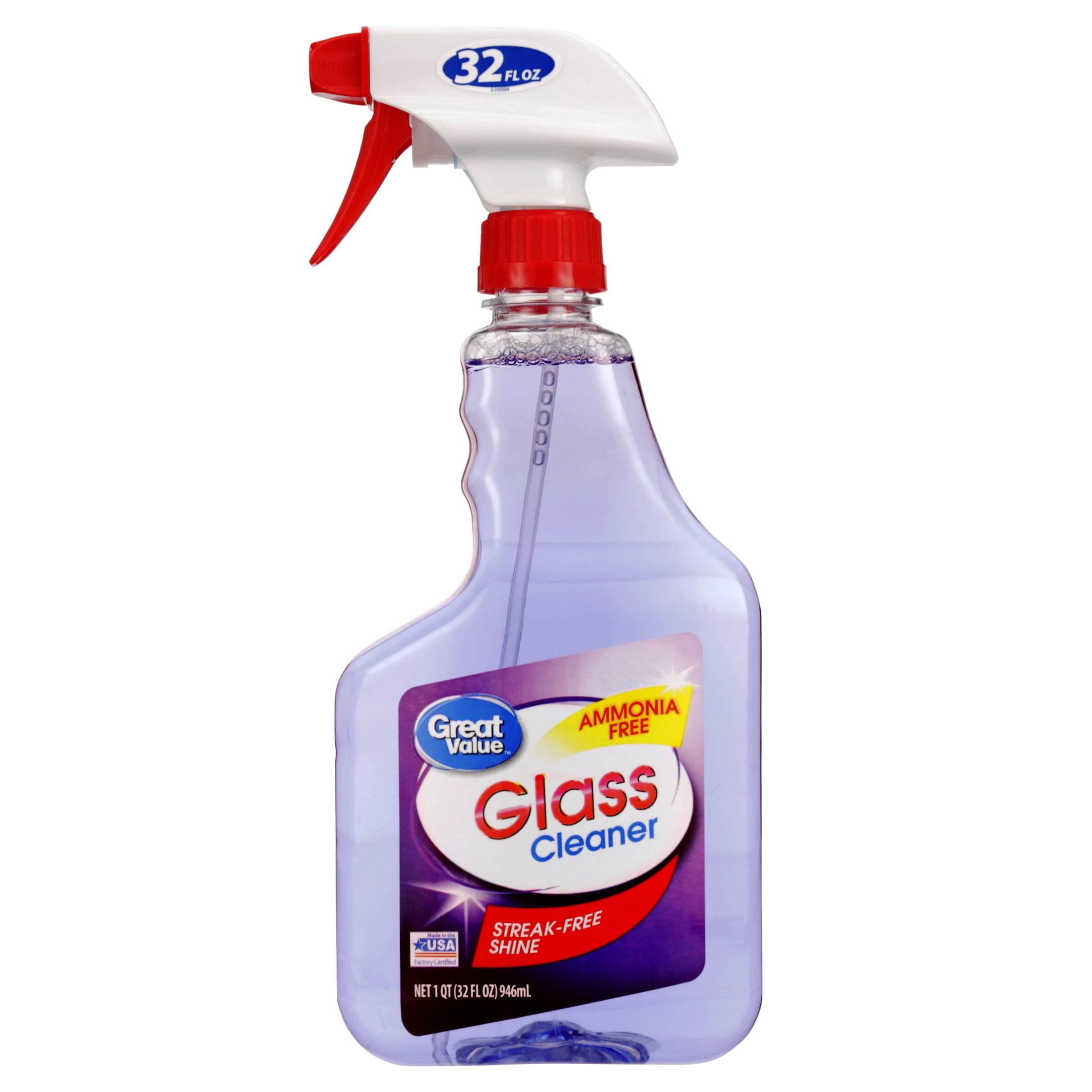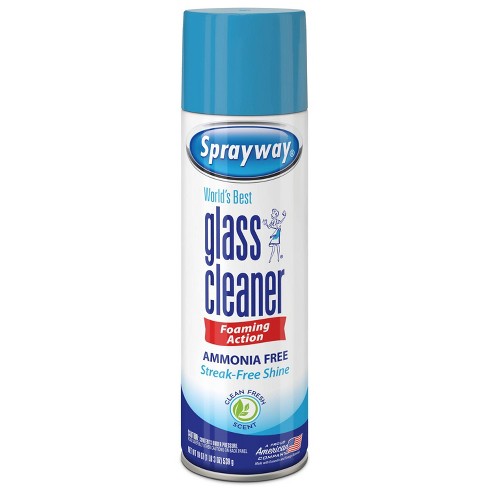Ammonia-free glass cleaners are safer for health and the environment. They reduce the risk of respiratory issues and damage to delicate surfaces.
Making a switch to ammonia-free glass cleaner tends to be a wise decision for both safety and environmental reasons. Traditional glass cleaning solutions often contain ammonia, a powerful and effective cleaner, but one with several downsides. Ammonia can trigger respiratory problems, such as asthma, and can irritate the skin upon contact.
Furthermore, its pungent odor can be overwhelming. An ammonia-free cleaner minimizes these health hazards, making it a preferable choice for homes, especially those with children, pets, or individuals with sensitive health conditions. Also, delicate surfaces like tinted windows and special coatings are less likely to suffer damage from ammonia-free formulas. Environmentally, ammonia-free options are a positive step forward, as they contribute to reducing harmful emissions that can affect the air quality. Hence, these gentler cleaners offer impressive results without the associated risks of ammonia-based products.

Introduction To Glass Cleaning
The clarity and shine of glass surfaces significantly enhance the aesthetic of any space, making routine cleaning a pivotal task in both homes and commercial environments. However, not all cleaning solutions are created equal, and the quest for spotless glass should also consider the safety of the users and the impact on the planet. This segment dives into the essentiality of clean glass and contrasts traditional cleaning solutions with the rising trend of eco-friendly options like ammonia-free glass cleaners.
The Importance Of Keeping Glass Surfaces Clean
Clean glass is not just about appearances; it also plays a crucial role in hygiene and safety. Here are a few reasons why maintaining sparkling clean glass is vital:
- Enhancing Visibility: For windows and automotive glass, clarity is crucial for safety and comfort.
- Preventing Damage: Dirt and grime can etch the surface over time, leading to irreversible damage.
- Improving Hygiene: Glass surfaces can harbor bacteria and fungi; regular cleaning keeps these at bay.
- Boosting Mood and Productivity: A clean, streak-free view can improve mental well-being and focus.
Check also: Can I Use Steel Wool to Clean Windows?
Overview Of Traditional Glass Cleaning Solutions
Traditional glass cleaners often contain ammonia, known for its effective degreasing properties and ability to leave a streak-free finish. Yet, despite these advantages, ammonia poses several risks:
| Risks of Ammonia-Based Cleaners |
|---|
| Health Hazard: Can cause respiratory issues and skin irritation upon contact. |
| Environmental Impact: Contributes to the emission of harmful gases and pollutants. |
| Material Incompatibility: Harsh on certain surfaces and materials, leading to damage. |
| Strong Odor: Pungent smell that can be displeasing and linger for hours. |
Shift Towards Health And Environmentally Conscious Cleaning
Given the drawbacks of traditional solutions, consumers and businesses are moving toward products that promise safety without compromising on effectiveness. Ammonia-free glass cleaners are at the forefront of this shift, offering several benefits:
- Safer for Users: Minimizes health risks associated with harsh chemicals.
- Environmentally-Friendly: Biodegradable ingredients that don’t harm ecosystems.
- Universal Application: Safe for a variety of surfaces including tinted glass.
- Pleasant Scent: Often infused with natural fragrances for a better cleaning experience.
Opting for an ammonia-free cleaning solution aligns with mindful lifestyles prioritizing health, sustainability, and efficiency.
Chemical Composition Of Glass Cleaners
The Chemical Composition of Glass Cleaners is intricate yet fundamental to their ability to effectively cut through grime and leave behind a streak-free finish. Commercially available glass cleaners feature a myriad of chemicals, each serving a specific purpose from dissolving dirt to evaporating quickly for that desired shine. The variations in these formulas can greatly impact not only the cleaning efficiency but also the health and environmental implications of their use. As consumers grow conscious of the products they use, understanding these ingredients becomes crucial.
Common Ingredients In Traditional Glass Cleaners
Traditional glass cleaners boast an assortment of ingredients, each one carefully chosen to tackle different cleaning challenges:
- Surfactants: These compounds lower the surface tension, allowing the cleaner to spread and penetrate grime.
- Solvents: Often alcohol or ethers, which help dissolve oils and other substances.
- Fragrances: Added for a pleasant scent during and after use.
- Preservatives: To extend the shelf life of the cleaner.
- Dyes: Added occasionally for aesthetics, though they do not enhance cleaning performance.
The Role Of Ammonia In Glass Cleaning
Ammonia, a notorious ingredient in many traditional glass cleaners, is appreciated for its effectiveness in:
- Evaporating quickly, thus reducing streaking.
- Breaking down fatty acids and tough grime.
- Providing a streak-free shine, especially on glass surfaces.
However, its use comes with drawbacks. The strong fumes can be irritating and hazardous, especially in poorly ventilated areas, making ammonia-based cleaners a less ideal option for households with pets, children, or individuals with respiratory concerns.
Comparing Ammonia-based Vs. Ammonia-free Formulas
When deciding between ammonia-based and ammonia-free glass cleaners, an evaluation of their respective components illuminates various pros and cons:
| Aspect | Ammonia-Based Cleaners | Ammonia-Free Cleaners |
|---|---|---|
| Cleaning Power | High | Varies with formulation |
| Health Safety | Lower due to fumes | Generally higher |
| Environmental Impact | Negative due to toxicity | Often lower, depending on other ingredients |
| Odor | Pungent | Typically mild |
Ammonia-free glass cleaners often leverage alternative, less aggressive agents like vinegar or citric acid, which provide cleaning strength without the harshness of ammonia. They are preferred by those seeking gentler yet effective cleaning solutions.
Health Benefits Of Ammonia-free Glass Cleaners
Clean and clear windows are a sight to behold, but the hidden costs of achieving that streak-free shine can be concerning. Ammonia-based glass cleaners have been a household staple for years, yet the underlying health risks they carry have pushed many to reconsider their choices. Ammonia-free glass cleaners provide a safer and healthier alternative, offering significant benefits that protect you, your family, and the environment. Dive into the advantages of making this switch below.
Reducing Exposure To Potentially Harmful Chemicals
Exposure to ammonia can have serious health implications, and it’s present in many traditional glass cleaners. Making the switch to ammonia-free options greatly reduces the potential for chemical-related health issues. Such products eliminate the risks associated with ammonia, such as skin irritation and the release of harmful vapors into your home’s atmosphere.
Preventing Respiratory Problems And Allergic Reactions
Ammonia vapors are notorious for causing respiratory discomfort and exacerbating conditions such as asthma and bronchitis. Opting for an ammonia-free cleaner promotes a healthier living environment, free from aggressive chemicals that can trigger these issues. It’s a proactive choice for anyone with respiratory sensibilities or allergies, ensuring cleaner air around the home.
Ensuring Safety For Children And Pets
Our homes are shared with the most vulnerable — children and pets, who are prone to the dangers of harsh chemicals. Ammonia-free glass cleaners offer peace of mind as they are less toxic and safer for use around our loved ones. They also prevent accidental ingestion or contact with these substances, safeguarding the well-being of the entire family.
Environmental Impact Of Ammonia-free Products
Cleaning products are part of our everyday lives, but their environmental footprint can be considerable. Switching to ammonia-free glass cleaners is a step toward a greener planet. This section peels back the layers of how such products contribute to environmental conservation, emphasizing biodegradability, reduced emissions, and sustainable practices.
Biodegradability And Eco-friendliness Of Ingredients
Opting for ammonia-free glass cleaners is not only beneficial for your health but also for the environment. These products typically contain ingredients that are more biodegradable. The eco-friendly components naturally break down into harmless substances, minimizing their ecological impact. This results in a safer lifecycle right from production through to disposal.
- Ingredients in traditional cleaners: Synthetic Chemicals, Ammonia
- Ingredients in ammonia-free cleaners: Plant-derived substances, natural minerals
Ammonia-free cleaners may replace aggressive chemicals with gentler alternatives like vinegar or citrus, which are capable of degrading swiftly and safely in the environment.
Reducing Harmful Emissions And Water Pollution
Ammonia is notorious for its noxious fumes. Beyond the immediate discomfort they cause, these emissions contribute to indoor air pollution and can form harmful substances when released into the atmosphere. Ammonia-free glass cleaners ensure that you keep your windows spotless without releasing dangerous compounds into the air or water systems.
Harmful effects of ammonia emissions include:
- Deterioration of air quality
- Health risks to humans and wildlife
- Contribution to eutrophication in water bodies
Supporting Sustainable Cleaning Practices
In an era where sustainability is imperative, using ammonia-free cleaners aligns with environmental stewardship philosophies. The production processes for these cleaners are designed to reduce resource use and pollution, offering a more sustainable option for conscious consumers. Moreover, the commitment of companies to these practices often extends to their packaging choices, opting for recycled materials and reduction of plastic waste.
Benefits of sustainable cleaning practices featuring ammonia-free products include:
| Sustainable Practice | Benefit |
|---|---|
| Use of renewable resources | Conservation of non-renewable resources |
| Minimal packaging | Reduced landfill contribution |
When selecting glass cleaners, looking for certifications like EcoLogo or Green Seal ensures that the products meet stringent environmental standards.
Performance And Efficacy Of Ammonia-free Cleaners
Choosing the right glass cleaner is essential not just for aesthetic clarity but also for the health of your environment and the longevity of your glass surfaces. Ammonia-free glass cleaners are gaining popularity due to their excellent performance and enhanced safety profile. Without the pungent odor and harsh properties of ammonia, these cleaners offer powerful cleaning in a kinder, gentler form.
Effectiveness In Cleaning Glass Surfaces
Ammonia-free glass cleaners are formulated with alternative agents that excel in tackling dirt, grease, and smudges. These solutions efficiently clean glass surfaces without compromising on effectiveness. Users can expect:
- A thorough cleanse, cutting through surface grime
- Removal of oily fingerprints and water spots
- High efficacy against a broad range of common contaminants
Adequate performance remains a top priority, and these ammonia-free options deliver results that are on par, if not superior, to traditional ammonia-based cleaners.
Streak-free Results And Residue Considerations
One of the most significant advantages of ammonia-free cleaning products is their ability to leave behind a crystal-clear, streak-free shine. Since they do not evaporate as quickly as ammonia, there is more time to wipe and buff the glass to perfection.
In addition to their impeccable shine, these cleaners do not leave harmful residues. Ammonia can sometimes leave a film that attracts more dirt and dust, counterintuitively leading to surfaces getting dirty again faster. Ammonia-free glass cleaners make sure glass stays clean and clear for longer durations.
Long-term Care And Maintenance Of Glass
Utilizing an ammonia-free cleaner contributes positively to the longevity and maintenance of glass surfaces. The absence of harsh chemicals means less risk of damage over time to the glass and any surrounding materials such as rubber seals or window frames.
Furthermore, these cleaners often contain ingredients that nourish and protect, leading to the following long-term benefits:
- Reduced risk of etching or cloudiness in the glass
- Preservation of the integrity of the glass surface
- Healthier indoor air quality for occupants
The choice is transparent: ammonia-free glass cleaners are not only effective but also promote the long-term well-being of glass installations and the environments they inhabit.

Choosing The Right Ammonia-free Glass Cleaner
Gleaming windows and mirrors enhance any living space, but ensuring they’re sparkling clean without the use of harsh chemicals can be a challenge. Ammonia-free glass cleaners offer a safer, healthier alternative that protects both your home environment and the ecosystem. Yet, with so many options on the market, how do you select the best ammonia-free glass cleaner for your needs?
Identifying Quality Ammonia-free Cleaning Products
Quality is paramount when opting for ammonia-free cleaners. A superior product not only leaves your glass surfaces streak-free but also takes care of your health and the environment. Look for cleaners that feature plant-based ingredients and have high efficacy in dissolving grease and grime.
- Eco-friendly certification: Seek out certifications from reputable organizations to ensure the product meets stringent environmental standards.
- Ingredient transparency: Trustworthy brands list all components, ensuring you’re informed about what’s in your cleaning solution.
- Safety for surfaces: Verify that the cleaner is safe for use on various surfaces including tinted glass, plexiglass, and laminated surfaces.
Price Vs. Performance: Finding The Best Value
Finding the sweet spot between cost and effectiveness is crucial in the decision-making process. Ammonia-free cleaners may come at a premium compared to conventional options, but investing in a product that is both effective and safe for your family’s health is priceless.
| Brand | Price | Volume | Cost Per Use |
|---|---|---|---|
| Clean & Green | $4.99 | 16 oz. | $0.31 |
| EcoShine | $5.99 | 16 oz. | $0.37 |
| PureVue | $6.99 | 16 oz. | $0.44 |
Consider not only the upfront cost but also the long-term value. Concentrated formulas or refill options might offer more applications for the price, reducing the overall cost over time.
Consumer Reviews And Recommendations
Deciphering the maze of products becomes easier when considering feedback from other consumers. User reviews often provide insights into a product’s performance in real-world conditions. Look for consistent mentions of benefits such as:
- No-residue finish
- Pleasant aroma or fragrance-free options
- Effectiveness on stubborn stains
Peer recommendations can significantly influence your decision. However, bear in mind that individual experiences can vary, and it’s best to use reviews in conjunction with other selection criteria.

FAQs For Why Use Ammonia-free Glass Cleaner
Does All Window Cleaner Have Ammonia?
Not all window cleaners contain ammonia; many brands offer ammonia-free options designed to be safe on all surfaces.
Why Is Ammonia Bad For Windshield?
Ammonia-based cleaners can damage car windshields by deteriorating the tint and weakening auto glass over time. Avoid using them to preserve windshield integrity.
Is Ammonia Bad In Windex?
Ammonia in Windex can irritate skin and eyes but is effective for cleaning. Keep it away from children and pets, and use in well-ventilated areas.
Is Vinegar Or Ammonia Better For Cleaning Glass?
Vinegar is typically better for cleaning glass as it’s natural, streak-free, and often more eco-friendly than ammonia-based cleaners. Both can be effective, but vinegar is the safer choice.
Conclusion
Switching to ammonia-free glass cleaners offers a bevy of benefits. It’s safer for your household, kinder to the environment, and remarkably effective. By choosing these products, you’re not only ensuring streak-free surfaces but also protecting your well-being. Take a step towards a cleaner, healthier home today.
